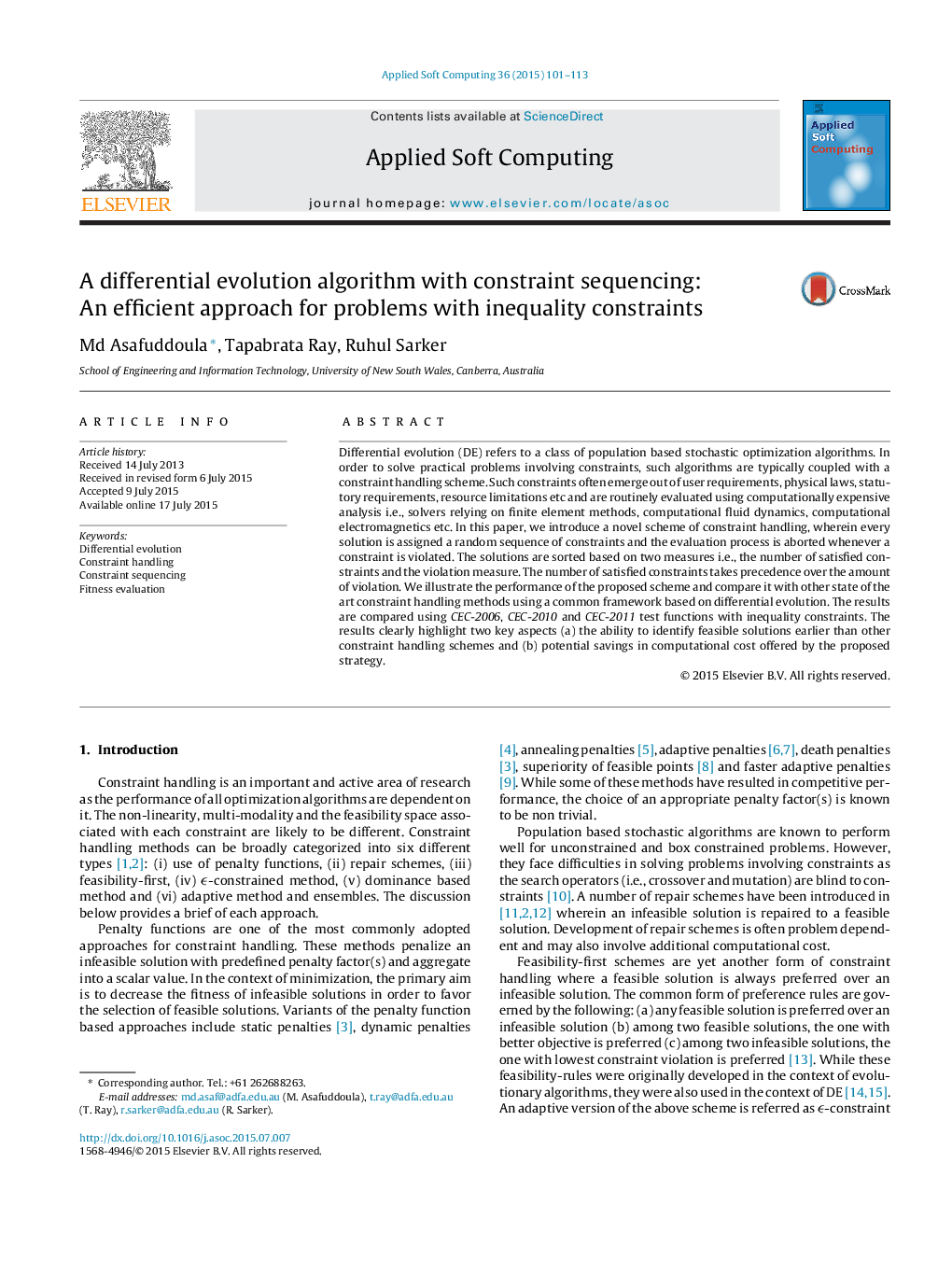| کد مقاله | کد نشریه | سال انتشار | مقاله انگلیسی | نسخه تمام متن |
|---|---|---|---|---|
| 494797 | 862808 | 2015 | 13 صفحه PDF | دانلود رایگان |
• An optimization algorithm is introduced based on a partial evaluation policy.
• The population are evaluated based on a random sequence of constraints.
• The search using multiple constraint sequences offers the potential to reach different regions of the search space.
Differential evolution (DE) refers to a class of population based stochastic optimization algorithms. In order to solve practical problems involving constraints, such algorithms are typically coupled with a constraint handling scheme. Such constraints often emerge out of user requirements, physical laws, statutory requirements, resource limitations etc and are routinely evaluated using computationally expensive analysis i.e., solvers relying on finite element methods, computational fluid dynamics, computational electromagnetics etc. In this paper, we introduce a novel scheme of constraint handling, wherein every solution is assigned a random sequence of constraints and the evaluation process is aborted whenever a constraint is violated. The solutions are sorted based on two measures i.e., the number of satisfied constraints and the violation measure. The number of satisfied constraints takes precedence over the amount of violation. We illustrate the performance of the proposed scheme and compare it with other state of the art constraint handling methods using a common framework based on differential evolution. The results are compared using CEC-2006, CEC-2010 and CEC-2011 test functions with inequality constraints. The results clearly highlight two key aspects (a) the ability to identify feasible solutions earlier than other constraint handling schemes and (b) potential savings in computational cost offered by the proposed strategy.
Figure optionsDownload as PowerPoint slide
Journal: Applied Soft Computing - Volume 36, November 2015, Pages 101–113
